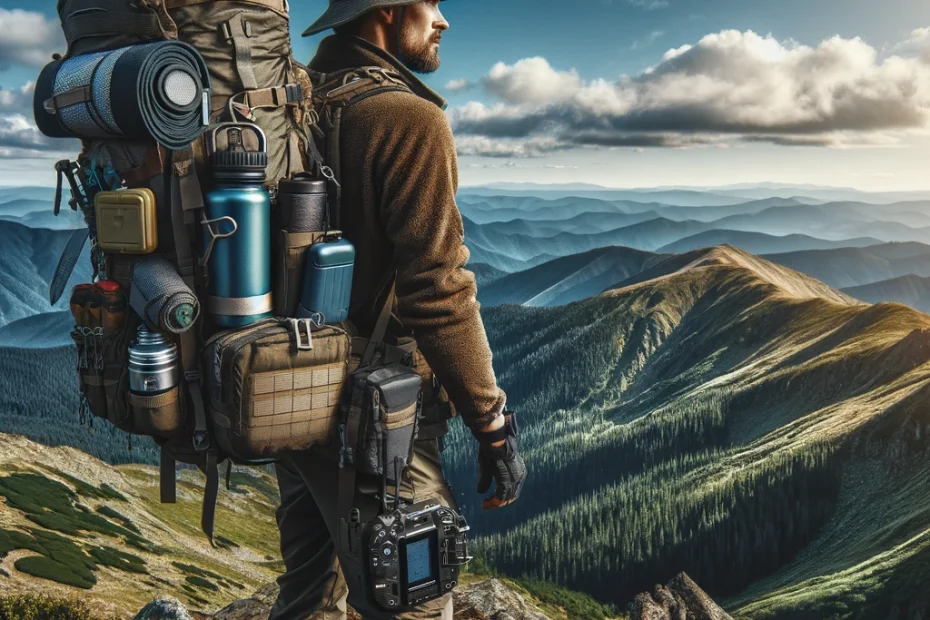Introduction
In an era where technology and civilization have seemingly tamed much of the natural world, the spirit of adventure still calls to many. However, the wilds, whether they are the remote forests, vast deserts, or the icy expanses of polar regions, remain untamed and unpredictable. For the modern adventurer, being prepared means not only having the right gear but also possessing a set of skills that could mean the difference between a triumphant return and a dire outcome. Survival skills are essential for anyone who ventures into the great outdoors, offering not just a safety net but also a deeper connection with nature. In this article, we delve into the crucial survival skills that every modern adventurer should know, providing insights from firsthand experiences and expert advice.
Survival Skills for the Modern Adventurer
Survival in the wilderness requires a blend of knowledge, preparation, and adaptability. The following sections cover the essential skills that equip you for various scenarios you might encounter in the wild.
Understanding Basic Survival Principles
Before diving into specific skills, it’s crucial to grasp the basic principles of survival. These include the rule of threes, which outlines the priorities for survival: three minutes without air, three hours without shelter in extreme conditions, three days without water, and three weeks without food. Understanding these priorities can help you make informed decisions in survival situations.
Creating Shelter
Shelter is your first line of defense against the elements. Knowing how to construct a shelter using natural materials or with the aid of a survival kit can protect you from extreme temperatures, wind, and rain. We’ll explore techniques for building both quick shelters for immediate protection and more sustainable shelters for long-term situations.
Finding and Purifying Water
Water is life. The ability to find and purify water is paramount in the wilderness. We’ll cover methods for locating water sources, from following animal tracks to collecting dew or rainwater. Additionally, we’ll discuss various purification techniques, including boiling, chemical treatment, and filtration.
Fire Making
Fire serves multiple purposes: warmth, cooking, signaling, and psychological comfort. Mastering different methods of fire-making, from traditional flint and steel to modern fire starters, is essential. We’ll also cover the best practices for building and maintaining a fire under various environmental conditions.
Foraging for Food
In the wilderness, the ability to identify and forage for edible plants, insects, and even hunt can be invaluable. This section will guide you through the basics of foraging, focusing on common edible plants, the importance of avoiding poisonous species, and simple trapping techniques for small animals.
Navigation Skills
In today’s world of GPS and digital maps, basic navigation skills are often overlooked. However, in many wilderness scenarios, you may find yourself without signal or power. We’ll revisit the traditional skills of map reading, compass use, and navigating by natural landmarks and celestial bodies.
First Aid and Self-Care
A solid foundation in first aid is crucial for addressing injuries and health issues that can arise in the wild. From treating cuts and fractures to recognizing symptoms of hypothermia and heatstroke, this section will provide essential knowledge for keeping yourself and others safe.
Signal for Help
In an emergency, knowing how to signal for help can make all the difference. We’ll discuss various signaling techniques, including the use of mirrors, smoke, and making noise, as well as the importance of leaving a travel plan with someone before you depart.
Mental and Emotional Resilience
Survival is as much a mental challenge as it is a physical one. We’ll explore strategies for maintaining a positive mindset, managing fear and anxiety, and making effective decisions under pressure.
Adapting to Different Environments
Different environments pose unique challenges and require specific skills. Whether you’re navigating a desert’s scorching heat, enduring the freezing cold of the arctic, or surviving in a tropical rainforest, we’ll provide tips and strategies tailored to these diverse conditions.
FAQs
- What are the most important survival skills to learn first?
- How can I practice survival skills safely?
- What should be included in a basic survival kit?
- How do I signal for help if I’m lost without a phone?
- Can survival skills be useful in everyday life?
Conclusion
The allure of adventure calls to the spirit of many, but the wise answer with preparation and knowledge. The survival skills outlined in this article are not just about enduring the wilderness; they’re about thriving in it, understanding its rules, and respecting its power. Armed with these skills, the modern adventurer can face the wilds with confidence, knowing they are prepared for what lies ahead.

